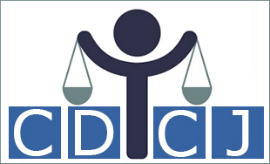The seminar “The Role of Court Presidents in Ensuring an Independent and Accountable Judiciary”, held on 26 and 27 June 2017 in Bijela (Montenegro) gathered the presidents of all courts of Montenegro to exchange knowledge and experience on topics aimed at improvement and better understanding of the court presidents’ tasks and roles.
The speakers at the two-day seminar, jointly organised by the Council of Europe Programme Office in Podgorica, Supreme Court of Montenegro and Judicial Council of Montenegro, were Council of Europe international experts and national experts. They presented topics related to the managerial roles of court presidents, relationships between court presidents and judges, protection of individual and institutional independence of the judiciary, administrative roles of court presidents and role of NGOs in judicial monitoring.
Participants concluded that the role of the court presidents should be assessed from the perspective of the users of the judicial system, with a more consistent adherence to the concept of successful time management in court cases. Also, relations between court presidents and other judges of the court and court administration should be periodically evaluated through methods of internal evaluation of their work and performances. In this framework, management of human and administrative resources is one of the key responsibilities of the court presidents, while relations of court presidents with media could play an essential role for defining the general positive perception and confidence of the public in the judiciary. The seminar emphasised the importance of the role of the court president in the system of disciplinary and ethical liability of judges.
The seminar was organised in the framework of the Action “Accountability of the Judicial System”, jointly funded by the European Union and the Council of Europe.




